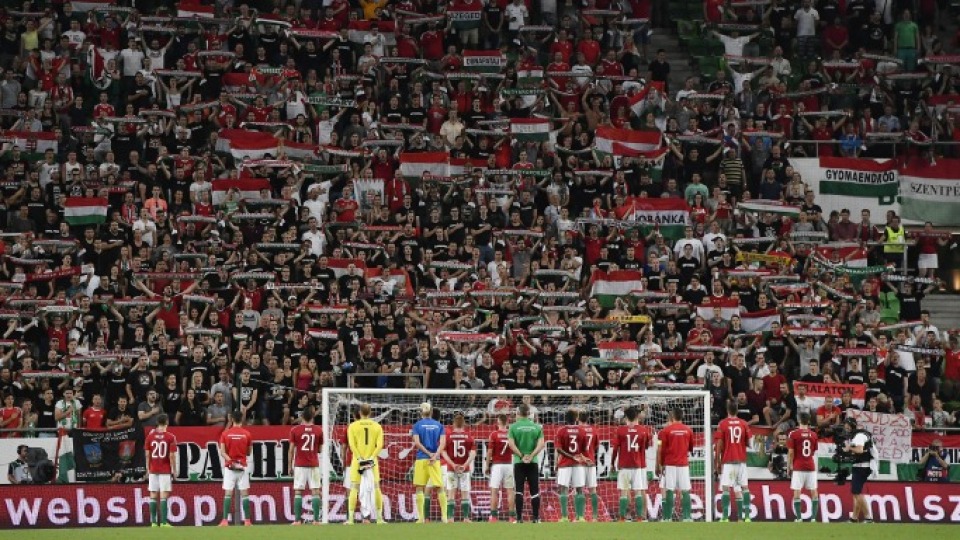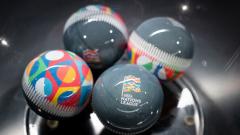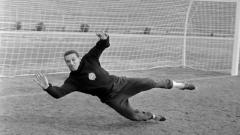The heart of Hungarian football in recent times; the Groupama Aréna

The Groupama Aréna is the home stadium of Hungary’s largest and most successful club Ferencvárosi TC, and since being opened in 2014 has also been the home venue of the Hungarian national team while the national stadium is rebuilt. Over the past four and a half years, the stadium has seen Champions League and Europa League- qualifier action, as well as hosting four Hungarian Cup finals to-date and, on one occasion, the Hungarian women’s national team too.
With a capacity of 22,000 which can be extended to 23,704 for domestic matches, the Groupama Aréna is the archetypal modern sports venue, boasting 2,969 VIP places, 34 skyboxes, parking for 480 cars, full stadium wifi and 220 LCD TVs. It is also a cash-free environment, which reduces queuing times with fans using a top-up card system. The stadium has won many awards since being built, perhaps the most prestigious being TheStadiumBusiness Awards best new venue award in 2015.
The current venue is the third stadium to be built on the Üllői út site which the Ferencváros club has called home since 1911, the first one eventually growing to have a capacity of 40,000 before being demolished in 1971. The second incarnation opened in 1974 with a capacity of 29,505, although this was reduced to 18,100 by the 1990s. With the stadium having seen better days and most spectators without any cover from the elements, it was finally demolished in March 2013. The new aréna was built in 14 months at a cost of €40 million and provided 3,000 jobs during its construction.
Three statues outside the stadium entrance all provide a link to the club’s past. In the northwest corner is an 8m high, 15-tonne stainless steel statue of an eagle atop a football which boasts a 16m wingspan. Designed by sculptor Gábor Miklós Szőke, it evokes the first-ever club crest, designed in 1928 by former footballer Miltiades Manno.
Behind the main tribune and in front of the stadium bistro, club shop and museum, is a statue of a footballer holding a football. That footballer is Flórián 'The Emperor' Albert, Hungary’s sole winner of the Ballon d’Or (in 1967) and scorer of 256 goals for the club in 351 league games between the late 1950s and mid-1970s. The second version of the Üllői út stadium, built in 1974, was named the Albert Stadion in his honour in 2007.
A statue of an athlete also sits in front of the main stadium entrance and café and has been present at the stadium since being made in 1922 by Lajos Mátrai in honour of Ferenc Springer, the first ever president of the club from 1899 until his death in 1920.
Affectionately known as ‘the Grupi’, at club level the stadium hosted the Hungarian cup finals of 2015, 2016, 2017, and 2018, and will also hold the 2019 event, whilst this season also saw the Groupama Aréna host a UEFA Champions League play-off match between MOL Vidi and AEK Athens, before the Székesfehérvár club played their three Europa League group-stage matches – against BATE Borisov, PAOK Salonika and Chelsea – in the stadium whilst their own, new MOL Aréna Sóstó stadium, was being completed.
Chelsea had already played at the Groupama, the London club being the visitors for the opening match against Ferencváros in August 2014. The first Hungary national team match came that September with Northern Ireland providing the opposition and the venue has since hosted the Hungarian national team on a further 22 occasions including Euro 2016 qualifiers, World Cup 2018 qualifiers and UEFA Nations League matches – the most memorable game coming in November 2015 when Hungary defeated Norway in a UEFA Euro 2016 Qualifier play-off to qualify for their first European Championship in 44 years.
The UEFA Euro 2020 qualifiers will see the stadium host matches against Croatia, Wales, Slovakia and Azerbaijan in 2019 as Hungary attempt to qualify for the first major tournament to be hosted in the country, albeit by that time the soon-to-be completed Puskás Stadion will have replaced the Groupama as Hungary’s home ground. The ‘Grupi’ is, nevertheless set to continue hosting international events, it being a proposed venue of the 2021 UEFA European Under-21 Championship being jointly hosted by Hungary and Slovenia.
Neither will the 2019 UEFA Women’s Champions League final be the first women’s match to take place at the stadium, the Hungarian women’s national team also having played there against Turkey in October 2015 in a Women’s 2017 European Championship qualifier.
A hírkategória további hírei
2026-02-19 23:09:38
Europa League play-off: Fradi take one-goal deficit home from Bulgaria
2026-02-12 23:09:33
UEFA Nations League: Hungary drawn with Ukraine, Georgia and Northern Ireland
2026-02-04 18:29:57
Gyula Grosics was born 100 years today
2026-01-31 00:12:06











